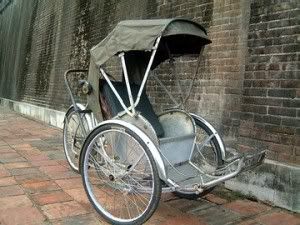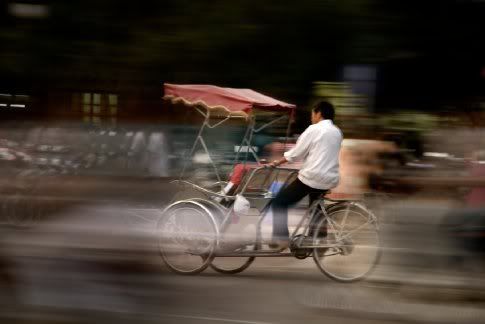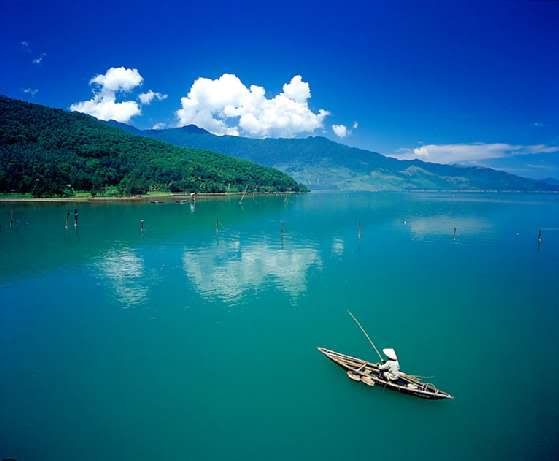
The cyclo is a three-wheel bicycle taxi that appeared in Vietnam during the French colonial period after a failed attempt to introduce rickshaws. A double seat (for Vietnamese – an average foreigner would find riding with a companion a bit of a squeeze) is supported by the two front wheels, with the driver sitting behind. The design in Ho Chi Minh City differs from the Hanoi variety in that the driver sits much higher (as do the prices!).
In the big cities, their use as a means of passenger transport has all but vanished over the last two or three years. Taxi fares have dropped, and fleets of buses with low fixed fares have greatly undercut the market - a journey from one side of either of the major cities to the other cost less than half a kilometre in a cyclo.
Nevertheless, they remain as a popular tourism attraction, but are not generally useful for city tours because they are banned from many major roads as traffic hazards.
They still reign supreme in carrying awkward loads along city roads, sometimes much to the annoyance of other road users. For visitors, it’s a good idea to have a camera to hand to snap the unlikely loads they carry – complete bedroom suites, live pigs, ten-metre scaffold poles and much more.
If you want to hire a cyclo, always negotiate the fare in advance. If you fail to do so, the driver will often ask for an exorbitant price and then blackmail you into paying it by making a major fuss in the street that will immediately attract a crowd. This is particularly so in Ho Chi Minh City.

Generally speaking, you should offer about a third of the sum quoted, and haggle up to no more than a half. Walking away will often turn an unacceptable price into an agreed sum.
However, it’s likely that the driver will not drop to the Vietnamese price, though – dual pricing has only recently been phased out, and cyclo drivers still stick to their belief that all foreigners are rich and can therefore afford to be more generous. Mostly, they’re right!
If you're planning a trip to Vietnam and need an expedited Vietnam visa, look into making arrangements for a visa on arrival. It's easier and quicker than other options for a travel visa for Vietnam.
To learn more about subjects like Vietnam Visa please visit the web site at: http://getvietnamvisa.org

